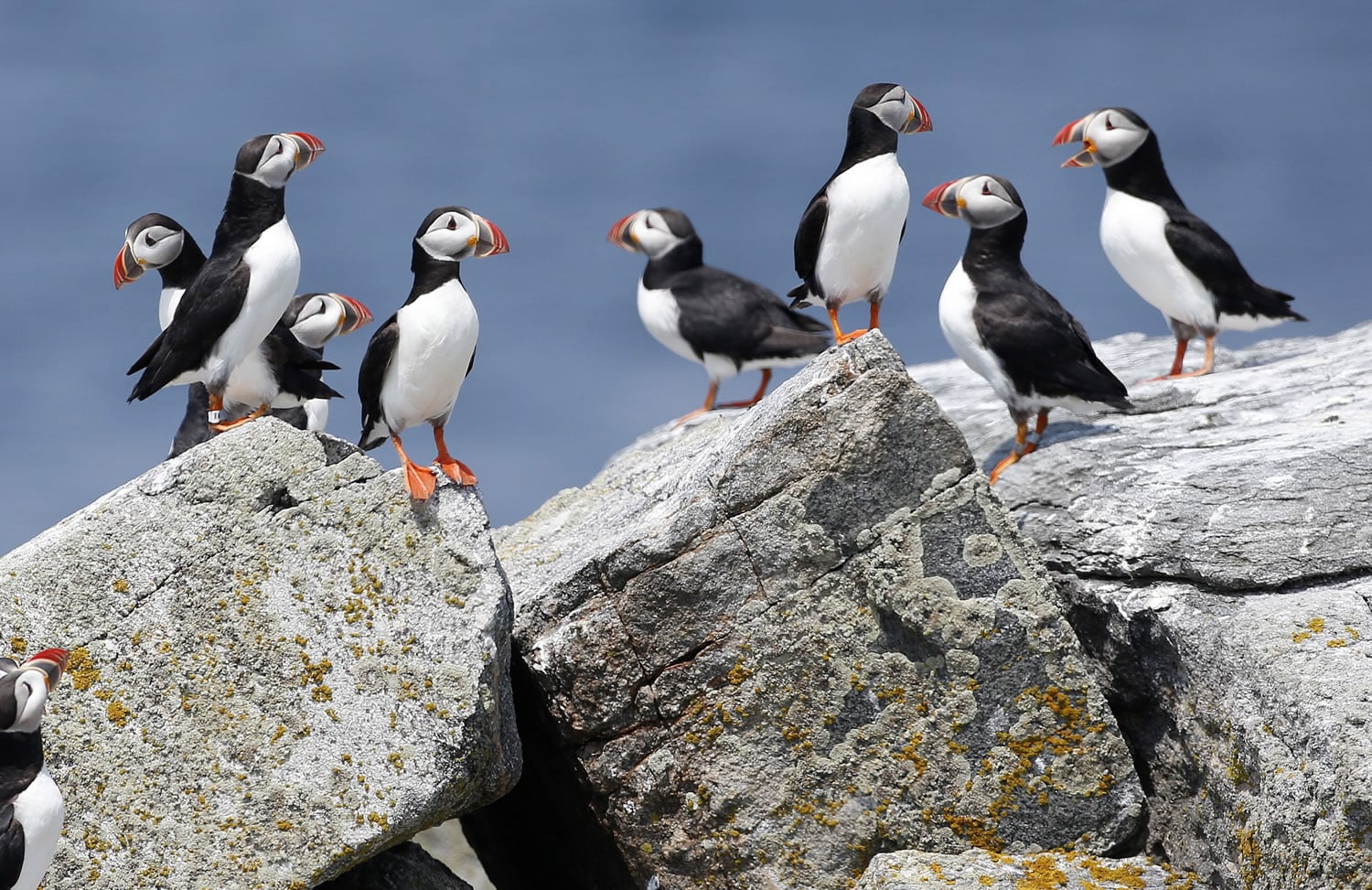PORTLAND, Maine — Researchers say they’ve found an answer to the long-standing question of where Maine’s Atlantic puffins spend the winter: far off New Jersey and New York.
Puffins are the colorful seabirds of the auk family that are graceful in the water and awkward on land and air. The birds spend the spring breeding season and summer in coastal areas before heading out to open ocean waters in the autumn and winter.
The National Audubon Society has described the exact winter locations of Maine’s puffins as “long a mystery” to scientists. But the organization said Tuesday that locators recovered from 19 puffins in recent years show the birds spent a chunk of the winter several states away from Maine.
The area most frequented by puffins in the winter was about 200 miles southeast of Cape Cod, said Stephen Kress, the director of the Audubon Seabird Restoration Program. Puffins winter over underwater canyons and sea mountains in the Atlantic.
Audubon said its findings mark the first time the winter grounds of Maine-breeding Atlantic puffins have been mapped. It’s an important discovery because puffins are a threatened species and data about their movements are needed to inform conservation efforts.
“Potential threats of commercial fishing, offshore wind and climate change have prompted the need for information on the nonbreeding movements and wintering locations of seabirds that nest in the Gulf of Maine,” he said.
Atlantic puffins have a total population estimated at more than 10 million, but the International Union for Conservation of Nature says that population is declining.
The bird is a favorite with birdwatchers and tour groups and has been the subject of vigorous conservation efforts in localized areas, including Maine, where there are about 1,000 pairs of puffins. Puffins nearly disappeared from the Maine coast because of hunting and egg collecting in the 19th century but have rebounded in the last four decades thanks to restoration efforts, Kress said.



